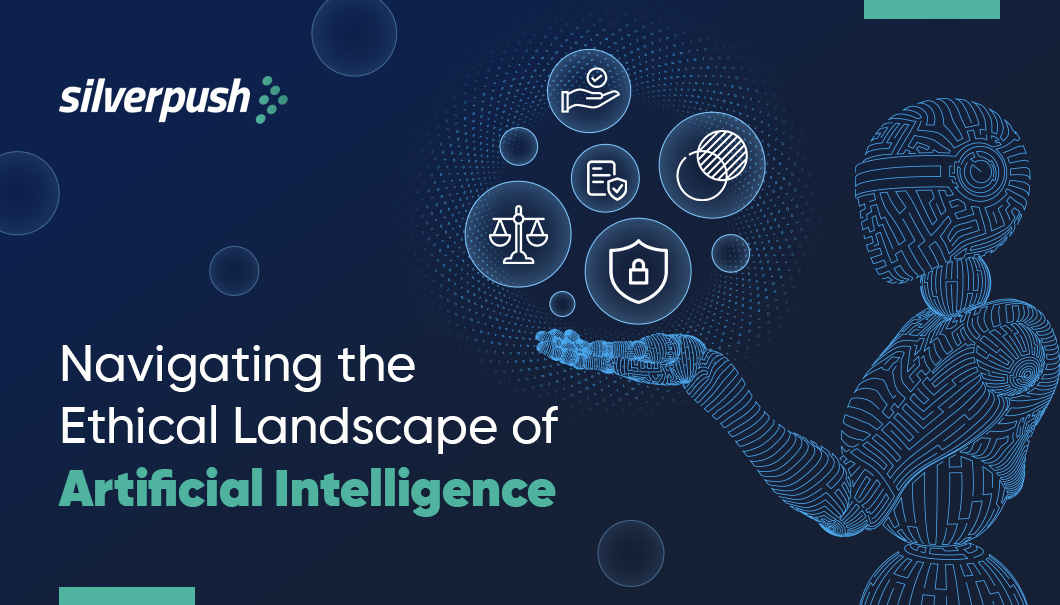The Importance of Responsible AI in Video Advertising | 12 Feb, 2024

Artificial Intelligence, aka AI, has become one of the most talked-about topics in recent years. Each day brings forth new AI technologies, with some already seamlessly integrating into our daily lives. The advertising industry, in particular, is experiencing a significant impact as AI, or its earlier iterations has been quietly working behind the scenes in automated systems for quite some time. However, there is a noticeable shift as AI is now making its presence felt in more overt and prominent ways.
- 54.5% of advertisers say AI will most likely greatly enhance their marketing efforts.
- 61.4% of marketers have used AI in their marketing activities.
- 19.2% of marketers spent more than 40% of their marketing budget on AI-driven campaigns.
Source: From Influencer Marketing Hub 2023
While AI usage is growing, advertising professionals are very aware of the challenges the technologies pose.
AI Presents Diverse Use Cases for Advertising Professionals
1. Data Analysis
2. Content Generation
3. Natural Language Processing (NLP)
3. Media Buying
4. Real-time Personalization
5. Enhanced Targeting
6. Automated Decision-Making
The adoption of artificial intelligence (AI) is revolutionizing a brand’s advertising operations, providing advertisers with unparalleled insights into consumer behavior and the opportunity to create customized solutions, products, and experiences. Yet, as we strive for innovation and efficiency, it is crucial to pause and contemplate the pivotal role of ethics in this AI-driven landscape.
Navigating the Video Advertising Landscape: The Crucial Role of Responsible AI
As AI continues to wield its influence, responsible practices become imperative to mitigate potential risks and foster a trustworthy advertising ecosystem. Responsible AI in video advertising involves aligning technological advancements with ethical considerations, ensuring that the benefits are distributed equitably and that potential biases are identified and addressed.
At its core, Responsible AI revolves around the use and development of AI algorithms that align with human principles and societal values. The primary aim is to guarantee that AI is designed and applied with key principles in mind: fairness, reliability, privacy, inclusiveness, and transparency. This approach ensures a balanced and ethical integration of AI technology into our lives.
Transparency
Transparency is the core principle of AI-powered advertising strategies. To ensure ethical AI practices it is important to safeguard these cornerstones. 77% of consumers are more likely to trust companies that have ethical use of AI policies, according to global research. Transparency isn’t a buzzword in the advertising industry. It is the key to building deeper and meaningful relationships with the target audience.
Privacy and Data Protection
Privacy and Data protection have been the constant concerns in the advertising ecosystem. With Generative AI capabilities advertisers must be vigilant in handling vast data sets/ Obtaining explicit consent for data usage and adhering to robust data protection regulations are the essential practices.
Additionally, advertisers must be careful of the biases as predictive text leverages historical data. Advertisers must deeply analyze and audit the AI system to identify and rectify the bias.
A significant 81% of Chief Marketing Officers (CMOs) express the belief that regulating generative AI is essential. This underscores the importance of approaching the implementation of AI technologies with careful consideration and a commitment to responsible practices.
The Road Ahead: Balancing Innovation and Ethics with Human Expertise
While Artificial Intelligence is a powerful tool, the integration of human expertise remains essential for advertisers to navigate the complexity of contextual nuances, ensure brand alignment, and address unforeseen challenges in the dynamic digital landscape.
Ethical Considerations in AI Development:
While AI algorithms can automate decision-making processes and optimize content delivery, it is essential to embed ethical considerations into the very fabric of AI development. Human experts play a pivotal role in defining ethical guidelines, identifying potential biases, and ensuring that the algorithms align with societal values. Striking a balance between technological advancement and ethical boundaries requires the expertise of those who can navigate the nuanced landscape of human values and cultural norms.
Human Oversight for Algorithmic Accountability:
Even the most advanced AI algorithms are not infallible. Human expertise is indispensable in providing oversight and accountability. Human experts can monitor algorithmic outputs, identify unintended consequences, and intervene when necessary to rectify biases or ethical lapses. This human touch ensures a level of transparency and accountability that machines alone cannot provide.
Understanding Context and Nuances:
Human expertise brings an understanding of context and nuances that are often challenging for AI systems to grasp fully. While algorithms excel at processing vast amounts of data, human experts can interpret cultural, social, and contextual subtleties that impact the effectiveness and appropriateness of video advertising. Striking the right balance between innovation and ethical considerations requires a deep understanding of the human experience, something that AI, as of now, cannot fully replicate.
Adapting to Evolving Ethical Standards:
Ethical standards evolve with societal changes, and human expertise is crucial in adapting AI systems to these shifts. Human experts can analyze the evolving ethical landscape, update algorithms accordingly, and ensure that video advertising practices remain aligned with the values and expectations of the target audience.
Maintaining Creativity and Emotional Intelligence:
While AI can analyze data and make predictions, it lacks the innate creativity and emotional intelligence that humans bring to the advertising industry. Crafting compelling and emotionally resonant content often requires human intuition, cultural understanding, and the ability to connect with diverse audiences on a personal level.
Conclusion
In conclusion, we can say that AI will play a vital role in advertising operations and advertisers need to be highly skilled to maintain data privacy, trust, safety, and high standards of advertising.

BLOGS
3 Takeaways from Cannes 2025: From Performance to Relevance
Last month, Silverpush team kicked off the #SummerOfContext in a big way at the Cannes Lions International Festival of Creativity 2025. To start off the week, we launched a brand new contextual targeting solution for TikTok to help brands with brand safety and higher relevance. We also announced our ...

BLOGS
Partner Spotlight: Ben Salaman, Senior Strategist at PB&
1. Tell us about your agency. What makes you stand out? PB& is a small, independent agency that was founded by people who have spent a lot of their careers in larger agencies. We saw that creativity and efficiency often tend to suffer due to silos, so our founder decided to ...

BLOGS
How to Win at TikTok Advertising in 2025 With Contextual Targeting
TikTok is no longer just a platform for viral dances and trending audio, it’s now a serious force in the advertising world. With nearly 2 billion users and over 1.8 billion reachable through ads, it’s where your audience is spending their time. But while TikTok delivers unmatched reach, it hasn’t ...







